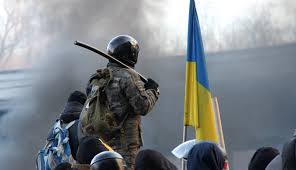The Aftermath of Putin’s Aggression: How the War in Ukraine Has Affected the United States and the World

Source: https://www.nea.org/advocating-for-change/new-from-nea/teaching-about-war-ukraine
March 22, 2022
It has been nearly a month since Russian forces invaded the neighboring nation of Ukraine. The provocation of war and the global response to it has affected the daily lives of Americans around the world, and a prolonged war could have even greater consequences for our nation. The North Atlantic Treaty Organization (NATO), of which the United States is a part, has responded to the war with economic sanctions and the banning of major Russian exports, such as crude oil. It is as important to support Ukraine as it is to understand thoroughly the risks involved as well as the costs and benefits of our actions.
The invasion of Ukraine sent the global economy into a state of greater uncertainty. According to MarketWatch, the price of crude oil has risen from $92.35/barrel on February 22, 2022 to $107.83/barrel a month later, with a high price of $123.70/barrel on March 8. This sudden increase in crude oil prices has driven up prices of gasoline for Americans. According to The American Automobile Association, the average price for a gallon of regular gasoline in the United States was $4.25 on March 20, 2022, with New Jersey’s prices at an average of $4.22/gallon. This is a sharp rise from last month before the invasion, when a gallon of gasoline was $3.53/gallon on average across the United States and $3.61/gallon on average in New Jersey. It should be noted that a week ago, the average cost was $4.35/gallon, indicating that the price of oil is stabilizing as the world moves away from Russian oil. In addition to powering a majority of America’s automobiles, gasoline powers truckers and farmers. As a result, it will cost more to produce and ship food, likely leading to rising food prices. According to Sky News, this rise in food prices could threaten food security for British citizens, a problem which will likely spillover to the United States. Although punishments for Russia because of their invasion of Ukraine are deserved, Western nations must be deliberate and smart in their punishments and allow their own citizens to enjoy the same economic security as if the invasion had not happened.
It is obvious that we should punish Russia and help Ukraine, but equally obvious that Western military forces should not be involved in the conflict. Chiefly, only 35% of respondents to a Pew Research study expressed support for military intervention even with the possibility of nuclear war. Throughout the Cold War, the United States and Soviet Union escaped the use of nuclear weapons against each other in order to avoid the destruction of human civilization. The objective must be the same here. In an address to the U.S. Congress on March 16, 2022, Ukrainian President Volodymyr Zelenskyy called for the U.S. and NATO to impose a “no-fly zone” over Ukraine, or to “close the skies.” It is important to note that Ukraine is not a member of NATO, meaning that there is no formal obligation for such a drastic measure. In Article 5 of the NATO Charter, it is stated that if one nation were to be attacked, all NATO members would be required to use military action. Therefore, a no-fly zone imposed by NATO would likely be used by Putin as a justification for a military attack on NATO nations, triggering global conflict.
Over the past month, we have seen on television, websites, and even TikTok how destructive Putin’s invasion has been for the people of Ukraine. According to the United Nations High Commissioner for Refugees (UNHCR), there are 3,389,044 refugees from Ukraine as of March 19, 2022, with over two million of those heading to neighboring Poland. Let us hope that our leaders are able to lead the world to peace throughout this escalation.

